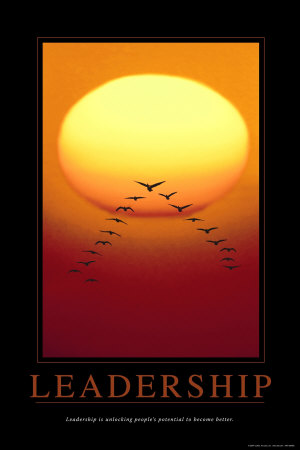To: The Great Leaders Who Have a Passion for Continuous Learning
Sir Douglas Bader, Royal Air Force fighter ace, wrote:
“Rules are for the obedience of fools and the guidance of wise men.”
It is ‘rules’or principles that guide the highly successful leaders life’s journey.
They are deeply internalized and establish the mindset through which
actions, words, attitudes and behaviors are expressed. The leader’s
core values (e.g. integrity, respect, caring) are key among these
rules/principles. Along the way, leaders find others that complement
them, bringing added richness and depth to their meaning and to the
leader’s personal development.
Dr. Cherie Carter-Scott, author, life coach and motivational speaker,
provides some of these in her book, If Life Is a Game, These Are the
Rules.
There simplicity brings pause for reflection, and in this reflection both a reminder and an opportunity for renewal of our principles.
The Ten Rules For Being Human
Rule One - You will receive a body.
You may love it or hate it, but it will be yours for the duration of
your life on Earth.
Rule Two - You will be presented with lessons.
You are enrolled in a full-time informal school called "life". Each
day in this school you will have the opportunity to learn lessons. You
may like the lessons or hate them, but you have designed them as part
of your curriculum.
Rule Three - There are no mistakes, only lessons.
Growth is a process of experimentation, a series of trials, errors and
occasional victories. The failed experiments are as much as a part of
the process as the experiments that work.
Rule Four - The lesson is repeated until learned.
Lessons will be repeated to you in various forms until you have
learned them. When you have learned them, you can go on to the next
lesson.
Rule Five - Learning does not end.
There is no part of life that does not contain lessons. If you are
alive, there are lessons to be learned.
Rule Six - "There" is no better than "here".
When your "there" has become "here" you will simply obtain another
"there" that will look better to you than your present "here".
Rule Seven - Others are only mirrors of you.
You cannot love or hate something about another person unless it
reflects something you love or hate about yourself.
Rule Eight - What you make of your life is up to you.
You have all the tools and resources you need. What you do with them
is up to you.
Rule Nine - Your answers lie inside of you.
All you need to do is look, listen, and trust.
Rule Ten - You will forget all this at birth.
You can remember it if you want by unraveling the double helic of inner-knowing.
As Albert Einstein wrote: “You have to learn the rules of the game.
And then you have to play better than anyone else.” The great and
successful leaders “play better than anyone else.” Play hard this
week and remember the rules. And have fun doing it!





